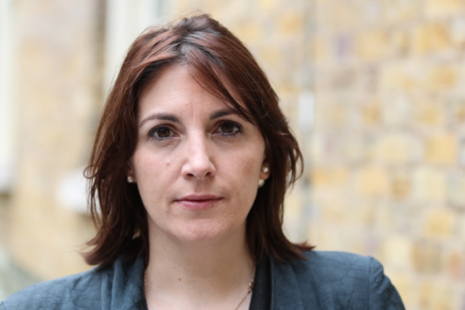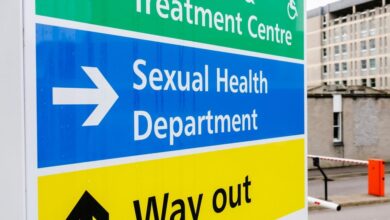Covid inquiry: ‘Reluctance’ to accept NHS could hit crisis

A former civil servant has spoken about a culture of sexism inside government at the outset of the Covid-19 pandemic, and admitted there was a “reluctance” to admit the NHS could fail under the strain.
Helen MacNamara, who, between 2020 and 2021, was deputy cabinet secretary in the Cabinet Office, gave evidence to the UK Covid-19 Inquiry this week about the attitudes of the Boris Johnson administration, including its non-elected advisors, and about its actions in the early pandemic period.
“There was an inbuilt reluctance to accept that it was possible to get to a point where the NHS was overwhelmed”
Helen MacNamara
Ms MacNamara made the comments on Wednesday, 1 November, at an evidence session for the inquiry which started taking evidence in public hearings in June 2023.
Chaired by Baroness Heather Hallett, the inquiry is analysing the UK’s preparedness for, and response to, the pandemic.
Ms MacNamara’s evidence session was overseen by Baroness Hallett and assisted by Andrew O’Connor KC.
Mr O’Connor asked Ms MacNamara about her witness statement, submitted to the inquiry, in which she recalled being told repeatedly that the NHS had an “elastic” capacity and how this might have affected what measures the government took to reduce Covid-19 infections.
Ms MacNamara’s statement said: “It was difficult to get the right kind of engagement from [the Department of Health and Social Care] or the NHS.
“There was an inbuilt reluctance to accept that it was possible to get to a point where the NHS was overwhelmed and/or to acknowledge that this would be something that No.10 and the prime minister would need to be across.
“It was only much later that I realised that what was meant by NHS capacity being elastic was the capacity of people working in the NHS to work themselves into the ground to keep people alive.”
The senior lawyer asked Ms MacNamara, who no longer works in the civil service, if she ever “[got] to the bottom” of what it would take to consider the NHS overwhelmed.
Referring to the first winter of Covid, in 2020-21, Ms MacNamara said she recalled not being able to “bear” the NHS ending up in the same position it had been in the spring, when the pandemic first hit.
“There was, at the same time, this concern that I had, probably again thinking back to March, of how would we be able to identify the point at which we thought that it was likely the NHS got overwhelmed,” she said.
“The thing I was finding really difficult is that it was very, very – well, it was just impossible to get anybody to quantify that, to say, ‘We will know two weeks before we hit an absolute crisis point that we are heading for a crisis point’, and then what is our plan B.”
She went on to acknowledge, on reflection: “We […] weren’t concerned enough about the […] overall health of the population as opposed to what we would do if […] there were ambulances queued up outside three hospitals in the same geography.”
Ms MacNamara also spoke about a “toxic” and “macho” working environment overseen by then-prime minister Mr Johnson and his chief advisor at the time Dominic Cummings.
She said there were “numerous examples of women being ignored, excluded and not listened to or talked over”, and that the “female perspective was being missed” in key decision making.
“It was striking, […] it was really, really obvious that not only were there hardly any women there, but when they were there […], there just weren’t any women talking,” she said.
“Our basic needs were overlooked and our goodwill was abused”
Nicola Ranger
“Which was unusual. And that probably – well, I don’t know if it’s worse than that, but related to that, women whose job it was to do something were not able to do their jobs properly because they weren’t having the space or being asked the right questions or being treated with the respect that they would do.
“And then the fact that there were no women contributing to the policy discussion documents, a problem in itself, because there were some expert women who weren’t being listened to, and also women were being looked over.”
Professor Nicola Ranger, chief nurse of the Royal College of Nursing (RCN), said the description of the sexist environment which Ms MacNamara spoke of was a “painful” reminder of the early pandemic period for nurses.
“As a 90% female profession, nursing staff will find [these] reminders painful,” she said.
“These cavalier and misogynistic attitudes left nursing staff, especially women, at even greater risk and with deadly consequences.
“Yesterday’s men relied on nursing staff to deliver care to the highest standard, whilst failing to meet basic professional standards themselves.”
Referring to Ms MacNamara’s comments about the NHS being seen as elastic, Professor Ranger said it “explains” the way healthcare staff were treated at the time and why they were “pushed too far”.
“Our basic needs were overlooked and our goodwill was abused. Regrettably, these lessons appear not to have been learnt,” added Professor Ranger.







